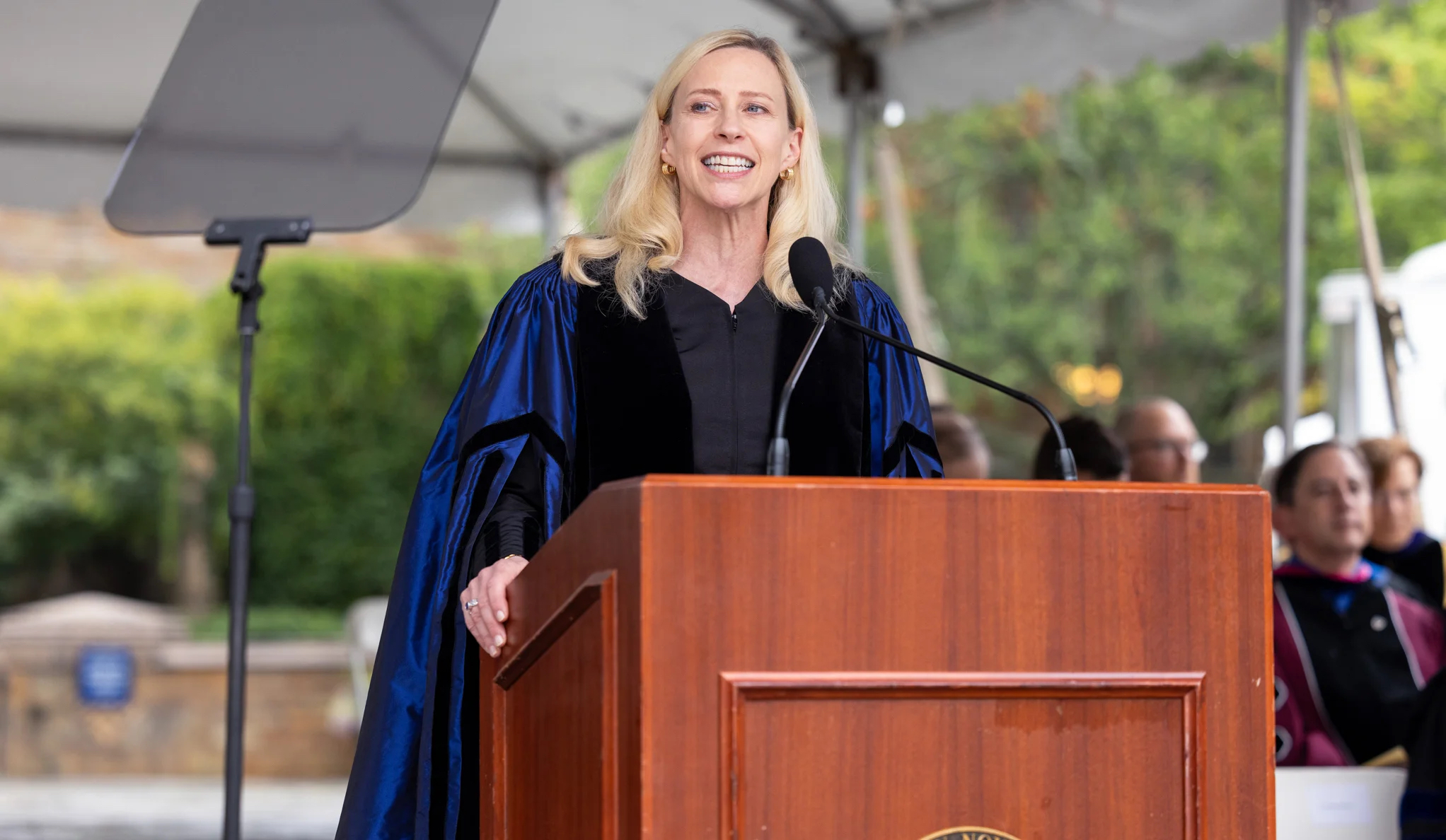McInnis prioritizing mental health and STEM programs, plans to continue Salovey administration policies
University President Maurie McInnis told the News that she does not plan to articulate a distinct vision for the University or make any changes before her April inauguration, but that she sees student mental health and investments in science and engineering programs as priorities.

Yale News
University President Maurie McInnis emphasized to the News that she does not plan to make changes to the University or its policies in the near future. However, she said that based on her ongoing “listening tour” of Yale’s stakeholders, she sees student mental health and investments in science and engineering as Yale’s current top priorities.
“[I] believe very strongly in the importance of my meeting lots of people, hearing about their aspirations for Yale and very much learning where Yale’s particular strengths are before having really concrete solutions,” McInnis said.
She said that it is “absolutely” fair to say that she is not presently planning any changes from Salovey’s administration.
She added that she has not hired anyone to join her team and has no plans to make changes to University leadership.
McInnis’s inauguration will be held in the spring semester, in April, a break from tradition. Former University President Peter Salovey was inaugurated on Oct. 13, 2013, and Former University President Richard Levin was inaugurated on Oct. 2, 1993.
“I expect we will lay out some things once we get to the inauguration,” McInnis said. “By then, we will have something that looks more like a vision speech. But nothing’s going to be a dramatic shift from where Yale is going.”
Focus on mental health
In her speech at the Opening Assembly last week, she structured her message to first years around the idea that loneliness and resulting mental health issues are common experiences among college students, and that “community is an antidote to loneliness.”
McInnis told the News that she decided to structure her address around mental health because she heard the issue echoed by multiple sources: feedback from her own children and their friends, academic research and a February survey in which Yale students ranked mental health as the University’s top challenge.
“I don’t know the granularity of what they mean by that,” she said of the survey results. “As I talk with students and as I get to know people better, I really want to understand what they mean by that — what they feel like they need, what can we do to support them better,” she said. “I do know that the answer is usually a multivariate answer.”
McInnis said that combatting mental health issues will likely come in several forms, namely “normalizing” them, doing prevention work and providing counseling resources. She added that she sees Yale’s residential college system as a unique and instrumental tool in improving student mental health.
Last year, in reaction to the survey results, then-President Peter Salovey told the News that university presidents “don’t make policy for services and generally and for issues affecting students,” and that mental health policy typically falls to the Office of University Life and deans instead. However, he added that presidents can raise awareness and funds and influence policy, and that he had done so in his support for Yale College Community Care, or YC3.
Science and engineering investments
McInnis said that “fulfilling the plans that have [been] put in place around our science investments” is Yale’s top priority.
“Yale’s science facilities, we’ll just say, are past supporting modern science,” she said.
In February 2022, the University announced a 10-year plan to improve the University’s science and engineering programs. The project, now in its third year, invests in the construction and modernization of campus buildings and the hiring of 45 new faculty members.
Beginning with constructing a new Physical Science & Engineering Building on Science Hill, the project is now entering its implementation stages, which will include renovating buildings on lower Hillhouse Avenue. McInnis said that she will be active in the plan’s continued rollout but that there are no changes she wants to make.
“The real important thing is making sure we get the implementation right in all of those [new science facilities],” she said. “I’m deeply committed to that work. I was supportive of it as a corporation member and now see it as my privilege to work supporting academic leaders to ensure that we do this work and we do it well, building Yale into a powerhouse in sciences and engineering.”
According to McInnis, the plan especially aims to support science related to planetary solutions, biodiversity loss and climate change, aging and disease, neuroscience, quantum computing and data and computing science.
When the project was announced, University Provost Scott Strobel told the News that it would continue to evolve, including budget adjustments over the years as faculty members are hired.
“The buildings aren’t empty and there’s people that are occupying them,” Strobel said. “They need to continue to be able to do their work, and so it’s a long process of moves, shifts, renovations and more moves.”
McInnis began her tenure as University president on July 1.







